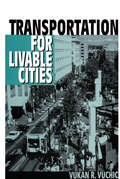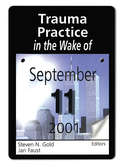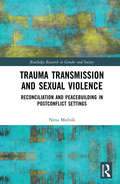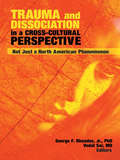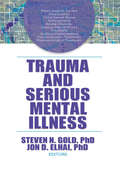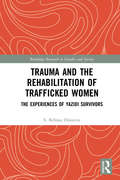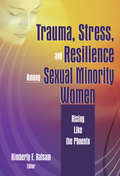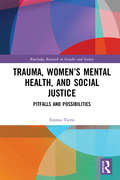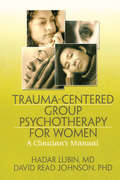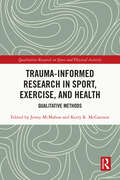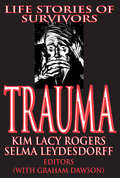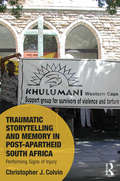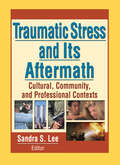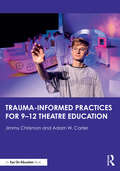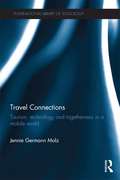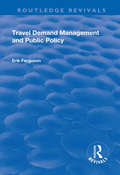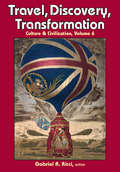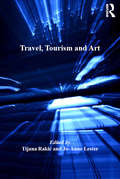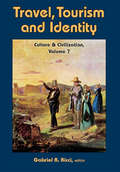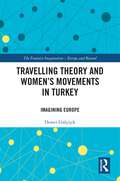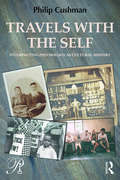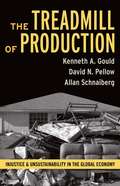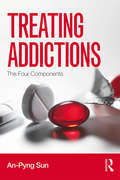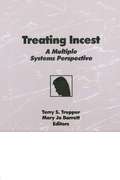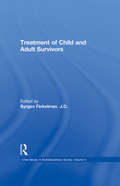- Table View
- List View
Transportation for Livable Cities
by Vukan VuchicThe twenty-first century finds civilization heavily based in cities that have grown into large metropolitan areas. Many of these focal points of human activity face problems of economic inefficiency, environmental deterioration, and an unsatisfactory quality of life—problems that go far in determining whether a city is "livable." A large share of these problems stems from the inefficiencies and other impacts of urban transportation systems.The era of projects aimed at maximizing vehicular travel is being replaced by the broader goal of achieving livable cities: economically efficient, socially sound, and environmentally friendly. This book explores the complex relationship between transportation and the character of cities and metropolitan regions. Vukan Vuchic applies his experience in urban transportation systems and policies to present a systematic review of transportation modes and their characteristics.Transportation for Livable Cities dispels the myths and emotional advocacies for or against freeways, rail transit, bicycles,and other modes of transportation. The author discusses the consequences of excessive automobile dependence and shows that the most livable cities worldwide have intermodal systems that balance highway and public transit modes while providing for pedestrians, bicyclists, and paratransit. Vuchic defines the policies necessary for achieving livable cities: the effective implementation of integrated intermodal transportation systems.
Trauma Practice in the Wake of September 11, 2001
by Steven N Gold Jan FaustTrauma practitioners and educators: are you ready to meet the challenges of the aftermath of terrorist attacks?Trauma Practice in the Wake of September 11, 2001 will show you how frontline trauma practitioners responded to the crisis of the terrorist attacks. In keeping with Haworth’s mission to provide practitioners and educators with timely information on the assessment and treatment of trauma, this essential book responds to the traumatic impact of the events of September 11th, 2001 and their implications for trauma practice. In Trauma Practice in the Wake of September 11, 2001, you’ll hear from the leaders of the Green Cross--one of the most prominent organizations providing psychological disaster response services--on their experience in the World Trade Center disaster, and read about the treatment of a client who was in the first WTC bombing in 1993. You'll also find revealing interviews with an Israeli psychologist and a Palestinian psychiatrist who focus on the impact of terrorism on their citizens. Trauma Practice in the Wake of September 11, 2001 is your key to state-of-the-art information on: the psychology of terrorism the traumatic impact of terrorism on those directly affected the traumatic impact of terrorism on the general population ways to help children, adolescents, and adults cope with the aftermath of the terrorist attacks on America how to deal with “compassion fatigue” (emotional depletion among helping professionals working with traumatized populations) traumatologists’response to rescue workers and victims in New York CityThe catastrophic events of September 11th have and will continue to raise special challenges for those of us in the field of trauma practice. By publishing this book and the ones to follow, we hope to assist trauma practitioners and educators in effectively meeting these continuing challenges.
Trauma Transmission and Sexual Violence: Reconciliation and Peacebuilding in Post Conflict Settings (Routledge Research in Gender and Society)
by Nena MočnikThis book grapples with the potential impacts of collective trauma in war-rape survivors’ families. Drawing on inter-ethnic and inter-generational participatory action research on reconciliation processes in post-conflict Bosnia-Herzegovina, the author examines the risk that female survivors of war-related sexual crimes, now-mothers, will breed hatred and further division in the post-conflict context. Showing how the historical trauma of sexual abuse among survivors affects the ideas, perceptions, behavioural patterns and understandings of the ethnic and religious ‘Other’ or perpetrator, the book also considers the influence of such trauma on other attitudes rarely addressed in peacebuilding programmes, such as notions of naturalised gender-based violence, cultural scripts of sexuality and support for dangerous or violent aspects of the patriarchal social order. It thus seeks to sketch proposals for a curriculum of peacebuilding that takes account of the legacy of war rape in survivors’ families and the impact of trauma transmission. As such, Trauma Transmission and Sexual Violence will appeal to scholars of politics, sociology and gender studies with interests in peace and reconciliation processes and war-related sexual violence.
Trauma and Dissociation in a Cross-Cultural Perspective: Not Just a North American Phenomenon
by George F. Rhoades Vedat SarAn international look at the similarities and differences of long-lasting traumaTrauma and Dissociation in a Cross-Cultural Perspective examines the psychological, sociological, political, economic, and cultural aspects of trauma and its consequences on people around the world. Dispelling the myth that trauma-related dissociative disorders are a North American phenomenon, this unique book travels through more than a dozen countries to analyze the effects of long-lasting traumatization-both natural and man-made-on adults and children. Working from theoretical and clinical perspectives, the field&’s leading experts address trauma in situations that range from the psychological effects of "the Troubles" in Northern Ireland to the emergence of "Hikikomori," the phenomenon of social withdrawal in Japanese youth.Reactions to trauma can be both unique according to a person&’s culture and similar to the experiences of others around the world. Dissociation, intense grief, anger, and survivor&’s guilt are common responses as people split off mentally, physically, and emotionally from the source of the trauma, whether it&’s an act of nature (tsunami, earthquake, flood, etc.) or the trauma created by violence, physical, sexual, and emotional abuse, assault, confinement, kidnapping, and war. Trauma and Dissociation in a Cross-Cultural Perspective examines the efforts of clinicians and researchers in Europe, Asia, the Middle East, South America, Australia, and New Zealand to develop sociopsychological methods of providing counseling to people who are suffering physically, emotionally and spiritually, training for professionals counted on to dispense that counseling, and economic and political solutions that might help to limit the devastating effects of natural disasters. Trauma and Dissociation in a Cross-Cultural Perspective examines: the tensions between the National Health Service and the private sector in the United Kingdom how the Mandarin version of the Dissociative Experiences Scale (DES) is used in China Djinnai, a culture-bound syndrome and possession trance disorder found in Iran how colonialism has transmitted trauma to the Maori people of New Zealand transgenerational trauma in Turkey religious rituals and spirit possession in the Philippines "memory wars" in Israel traumatic syndromes among the French differences in dissociative experiences among Chinese and Japanese youth childhood trauma in Argentina and much moreTrauma and Dissociation in a Cross-Cultural Perspective is an enlightening professional resource for anyone working in psychology, sociology, psychiatry, and psychotherapy.
Trauma and Serious Mental Illness
by Jon D. Elhai Steven N. GoldAn exploration of the newfound connections between mental illness and trauma For decades, the idea that serious mental illnesses (SMIs) are almost exclusively biologically-based and must be treated pharmacologically has been commonplace in psychology literature. As a result, many mental health professionals have stopped listening to their clients, categorizing their symptoms as manifestations of neurologically-based disturbed thinking. Trauma and Serious Mental Illness is the groundbreaking series of works that challenge this standard view and provides a comprehensive introduction to the emerging perspective of SMIs as trauma-based. This unique collection illustrates how different psychotherapy approaches can lead to reduced symptomatology, decreased psychological distress, and improved functioning in individuals living with SMIs. Each extensively-referenced chapter in Trauma and Serious Mental Illness offers mental health workers a forward-looking theoretical inquiry, empirical study, or critical treatise providing compelling counter evidence to challenge the widespread belief that SMIs are not reactions to the extreme and extremely disturbing circumstances embodied by psychological trauma. In addition to the etiological application, this revealing text proposes ways to incorporate this cutting-edge approach toward treatment options as well. Contributors to Trauma and Serious Mental Illness suggest that: childhood trauma is related to psychotic disorders dissociation can be confounded with psychotic symptoms auditory hallucinations can be diagnostic of dissociation rather than psychosis psychosis is related to the quality of family of origin environment and to age of onset of childhood abuse bipolar and trauma-related disorders sometimes overlap individuals with SMIs suffer related trauma even in treatment facilities and much more!Trauma and Serious Mental Illness is an eye-opening resource for mental health professionals, psychologists, counselors, psychiatrists, social workers, trauma workers, and educators and students in these disciplines.
Trauma and the Rehabilitation of Trafficked Women: The Experiences of Yazidi Survivors (Routledge Research in Gender and Society)
by S. Behnaz HosseiniBased on research in camps in Iraqi Kurdistan and among refugees in Germany, this book addresses the challenges, strategies and support systems that exist for the rehabilitation and reintegration of Yazidi women recovering from human trafficking. Through in-depth interviews, focus group discussions and case studies, it gives women trafficked by ISIS their own voice to express their experiences during captivity, whilst offering an overview of the forms of support and protection available and necessary for survivors. An examination of the experiences and needs of refugee women who have undergone traumatizing experiences, Trauma and the Rehabilitation of Trafficked Women will appeal to scholars and policy makers with interests in gender studies, feminist thought, sexual violence during war, human trafficking and trauma recovery.
Trauma, Stress, and Resilience Among Sexual Minority Women: Rising Like the Phoenix
by Kimberly BalsamPrevent victimization of sexual minority women by raising your awareness level! Trauma, Stress, and Resilience Among Sexual Minority Women: Rising Like the Phoenix is the first resource to examine trauma, violence, and stress as experienced by lesbian and bisexual women. You&’ll gain a better understanding of the stressors that these women experience, including the cultural/social trauma of living with homophobia and heterosexism as well as the individual traumas of verbal, physical, and sexual abuse. This book contains never-before-seen data that investigates the prevalence, impact, and meaning of traumatic experiences in the lives of sexual minority women. In Trauma, Stress, and Resilience Among Sexual Minority Women, top researchers use direct quotes and case examples to illustrate and personalize the emotional strain these women endure. Furthermore, they address constructive individual and community responses that promote resilience and healing. The information and strategies contained in this book will help sexual minority women, as well as the practitioners who serve them, understand and heal from the impact of individual and cultural trauma. This book will increase your knowledge of: developmental issues facing lesbian and bisexual youths the impact of sexual abuse history on the "coming out" process ethnic/racial differences in trauma among lesbian and bisexual women the prevalence and impact of traumatic experience among HIV+ lesbian and bisexual women the unique stressors facing African-American lesbians-and how they cope organized religion&’s approaches to homosexuality and how this impacts lesbian and bisexual women Trauma, Stress, and Resilience Among Sexual Minority Women also shows how data on same-sex domestic violence and hate crimes can be gathered and used as a tool for social and political advocacy, bringing about positive changes that can improve the lives of many lesbian and bisexual women. This book is insightful reading for mental health, health, and social service professionals working with lesbian and bisexual clients or patients, and activists and individuals who work for organizations that serve the gay/lesbian/bisexual/transgender communities.
Trauma, Women’s Mental Health, and Social Justice: Pitfalls and Possibilities (Routledge Research in Gender and Society)
by Emma TserisThis book argues that while notions of trauma in mental health hold promise for the advancement of women’s rights, the mainstreaming of trauma treatments and therapies has had mixed implications, sometimes replacing genuine social change efforts with new forms of female oppression by psychiatry. It contends that trauma interventions often represent a "business as usual" approach within psychiatry, with women being expected to comply with rigid treatment protocols, accepting the advice given by trauma "experts" that they are mentally unstable and that they must learn to manage the effects of violence in the absence of any real changes to their circumstances or resources. A critique of trauma treatment in its current form, Trauma, Women’s Mental Health, and Social Justice recommends practical steps towards a socio-political perspective on trauma which passionately re-engages with feminist values and activist principles.
Trauma-Centered Group Psychotherapy for Women: A Clinician's Manual
by David Read Johnson Hadar LubinLearn effective PTSD group treatment The awareness of psychological trauma has grown exponentially in the past decade, and clinicians in many areas have increasingly found themselves confronted with the need to provide trauma-related services to clients. Still, there remains a serious lack of manuals that guide clinicians using group therapy to treat posttraumatic stress disorder (PTSD). Trauma-Centered Group Psychotherapy for Women: A Clinician’s Manual is the important, “how-to” resource that fills this void with a successful theory-based, field-tested model of group therapy for traumatized women. Concise and full of clinical examples, this helpful text includes a session-by-session guide for clinicians and a workbook for clients. Comprehensive and practical, Trauma-Centered Group Psychotherapy for Women: A Clinician’s Manual not only describes the theory, method, and rationale for this effective treatment, but also offers a complete, step-by-step clinician’s manual and client workbook to help implement the model and establish effective practice. Explained in-depth are unique methods such as the use of testimonial and ceremonial structures to heighten the therapeutic impact and case examples of individual client histories and progress through treatment. In addition, appendices detailing a treatment contract and a script for a trauma program “Graduation Ceremony” are also included. Chapters in Trauma-Centered Group Psychotherapy for Women cover: concepts of group therapy with traumatized populations developmental theory of trauma and posttraumatic stress disorder usefulness and challenges of various formats of group therapy session-by-session instructions for clinicians session-by-session workbook for clients guidance in handling difficult treatment and clinical situations group therapy procedures and rules managing traumatic re-enactments empirical support for TCGP and much more!With a detailed bibliography and numerous diagrams, charts, and tables for visualizing information, Trauma-Centered Group Psychotherapy for Women is an ideal resource for mental health clinicians of all types, graduate students and educators, state mental health commissions and agencies, libraries, hospitals, and clinics.
Trauma-Informed Research in Sport, Exercise, and Health: Qualitative Methods (Qualitative Research in Sport and Physical Activity)
by Kerry R. McGannon Jenny McMahonThis is the first book to examine trauma research in the context of sport, exercise, and health. It outlines evidence-based, trauma-informed research practices, which qualitative researchers can use when conducting trauma research to prevent causing further harm to participants while maintaining a strengths-based approach.Featuring the trauma research of leading qualitative sport, exercise, and health researchers from around the world, each chapter showcases the contributors’ trauma research and participant context, followed by the ‘what, why, and how’ of trauma-informed research practices that were implemented. This book includes work from a wide range of contexts, including gender-based violence in sport and coaching, abuse in sport, the aftermath of abuse and violence, physical activity after spinal cord injury, trauma and limb amputation, trauma and homelessness, trauma and autistic adults, and sport for care-experienced youth. It provides researchers interested in working with populations affected by trauma with a qualitative research resource to build on, and highlights new directions in conducting trauma-informed research.This is important reading for any researcher with an interest in trauma not only in sport, exercise, and health research but also in qualitative research contexts more broadly. It is a valuable resource for anyone working in athlete welfare, sport and exercise psychology, youth sport, sport development, physical activity and health, disability, gender, safeguarding, or social work.
Trauma: Life Stories of Survivors (Routledge Studies In Memory And Narrative Ser. #Vol. 2)
by Selma LeydesdorffTraumatic experiences and their consequences are often the core of life stories told by survivors of violence. In Trauma: Life Stories of Survivors leading academics explore the relationship between the experiences of terror and helplessness that have caused trauma, the ways in which survivors remember, and the representation of these memories in the language and form of their life stories.International case studies include the migration of Ethiopian Jews to Israel, the life stories of Guatemalan war widows, violence in South Africa, persecution of political prisoners in South Africa and the former Czechoslovakia, lynching in the Mississippi Delta, resistance in Zimbabwe's liberation war, sexual abuse, and the ongoing Irish troubles. The volume reveals the complexity of remembering and forgetting traumatic experiences, and shows that survivors are likely to express themselves in stories containing elements that are imaginary, fragmented, and loaded with symbolism. Trauma: Life Stories of Survivors is a groundbreaking work of relevance across the social sciences. This new perspective on trauma will be of particular importance to researchers in psychology, history, women's studies, anthropology, sociology and cultural studies.
Traumatic Storytelling and Memory in Post-Apartheid South Africa: Performing Signs of Injury (Memory Studies: Global Constellations)
by Christopher J. ColvinThis book explores the practice of traumatic storytelling that emerged out of the South African Truth and Reconciliation Commission and came to play a key role in the lives of the members of the Khulumani Support Group for victims of apartheid-era political violence. Group members found traumatic storytelling both frustrating and yet also an important form of memory work that shaped how they saw themselves in the post-apartheid era. Drawing on ethnographic fieldwork, the author examines how traumatic storytelling functioned not only as a kind of psychological healing and national political theatre, but also as a potent form of social relation, economic exchange, political activism, and expressive practice. With emphasis on the personal, social, and political significance of the act of traumatic storytelling, this volume asks why members of Khulumani, despite their many disappointments, continued to engage intensively in storying their experiences for themselves and others. Examining what powers storytelling held for both group members and their witnesses, and considering the ways in which storytelling enabled new senses of self and new understandings of what was possible in the years after the end of apartheid, this book considers what we might learn more broadly from the experiences of Khulumani about the possibilities—and limits—of traumatic-memory-making as an instrument of personal, social, and political repair. As such, it will appeal to scholars of sociology, anthropology, and criminology with interest in justice and post-conflict societies.
Traumatic Stress and Its Aftermath: Cultural, Community, and Professional Contexts
by Sandra LeeExplore the aftermath of traumatic stress as it affects various populations, including therapists themselves! This book will educate you about the aftermath of traumatic stress as it impacts people in a variety of settings. It explores the factors that lead to increased or reduced vulnerability to the effects of traumatic stress, emphasizing the impact of cumulative/multiple trauma rather than the effects of a single traumatic incident, to help you design and implement effective prevention and intervention programs. The specific populations and groups addressed in this important book include: adolescent girls involved in armed conflict in Colombia&’s guerilla war urban African-American youth-a theoretical model for risk and resiliency people with strong spiritual/religious beliefs-how spirituality can affect a person&’s reaction to traumatic stress women in recovery in a community aftercare shelter female trauma therapists-factors affecting vicarious traumatization of helping professionals college students with histories of abuse Providing a framework for understanding traumatic stress-related issues based on a variety of methodologies and measures, Traumatic Stress and Its Aftermath addresses important questions, such as: What is the relationship between the experiences of trauma or other stressful life events, and subsequent traumatic stress? What are the protective factors that can buffer or ameliorate the development of traumatic stress in the face of adverse life experiences, trauma, or other stressful events? How do these questions evolve in different cultural or community contexts, and with different populations? What are the implications for interventions for community institutions and mental health workers? What roles do self-esteem and spirituality play in a person&’s reaction to traumatic stress? How do reactions to traumatic stress differ between women who have been sexually abused as children and women who have not? From editor Sandra S. Lee: "Contemporary developments in the study of traumatic stress are shifting. This book reflects an emphasis on the study of traumatic stress in normal community, cultural, or college student populations and groups, while other literature has focused on individuals specifically diagnosed with PTSD. In addition, Traumatic Stress and Its Aftermath: Cultural, Community, and Professional Contexts emphasizes the search for risk and protective factors and factors that can buffer the relationship between trauma exposure and subsequent distress."
Trauma–Informed Practices for 9-12 Theatre Education
by Jimmy Chrismon Adam W. CarterThis resource bridges the worlds of education, mental health, and the performing arts to offer a comprehensive roadmap for 9–12 theatre educators looking to promote safe, supportive, and creative spaces for their students. Written by a seasoned theatre educator and a licensed mental health clinician, this book explores trauma-informed teaching techniques tailored specifically for theatre classrooms, encompassing both acting and production processes. Chapters cover a broad range of topics, from fostering resilience in students to collaborating with caregivers, administrators, and communities across the educational journey. The authors introduce essential concepts such as intimacy direction and consent, ensuring ethical and inclusive practices. They also provide strategies for teachers to prioritize their own self-care. Core themes and objectives include: trauma-informed teaching, holistic theatre production, community engagement, ethical theatre practices, and educator wellness. Packed with practical exercises for exploration, discussion questions for book studies, and meticulously researched insights, this resource strikes a balance between therapeutic guidance and professional development. Ideal for 9–12 theatre educators in drama classrooms, after-school programs, and more, this guide equips you with the tools to support students who may have experienced trauma, empowering them in performing arts environments while maintaining healthy boundaries.
Travel Connections: Tourism, Technology and Togetherness in a Mobile World (International Library of Sociology)
by Jennie Germann MolzLiving in a world that is increasingly ‘on the move’ means that many of us now rely on mobile devices, social media, and networking technologies to coordinate togetherness with our social networks even when we are apart. Nowhere is this phenomenon more evident than in the emerging practices of ‘interactive travel’. Today’s travellers are more likely than ever to pack a laptop or a mobile phone and to use these devices to stay in touch with friends and family members – as well as to connect with strangers and other travellers – while they are on the road. New practices such as location-aware navigating, travel blogging, flashpacking and Couchsurfing now shape the way travellers engage with each other, with their social networks, and with the world around them. Travel Connections prompts a rethinking of the key paradigms in tourism studies in the digital age. Interactive travel calls into question longstanding tourism concepts such as landscape, the tourist gaze, hospitality, authenticity and escape. The book proposes a range of new concepts to describe the way tourists inhabit the world and engage with their social networks in the twenty-first century: smart tourism, the mediated gaze, mobile conviviality, re-enchantment and embrace. Based on intensive fieldwork with interactive travellers, Travel Connections offers a detailed account of this emerging phenomenon and uncovers the new forms of mediated and face-to-face togetherness that become possible in a mobile world. This book will be of interest to students and scholars of sociology, tourism and hospitality, new media, cosmopolitanism studies, mobility studies and cultural studies.
Travel Demand Management and Public Policy (Routledge Revivals)
by Eric FergusonThis title was first published in 2000: Describes policy innovations in transportation system management, planning and operations in the US that explicitly address interactions between transportation demands and travel behaviour in a mixed economy. The author shows how travel demand and management programmes function in the context of transportation supply and demand, investment, technology, pricing, management and marketing policies and procedures, with examples of voluntary, market-based and regulatory approaches to transportation and activity system management and institutional change. The author describes a variety of evaluation methods and models designed specifically for TDM programmes, and how these can be used to better inform decision-makers and other stockholders in the process of transportation policy formulation. TDM programmes have serious potential to increase the efficiency of a wide variety of transportation systems. Institutional obstacles are likely to prevent full implementation in the near future, but partial efforts are underway and likely to continue and succeed, under proper circumstances.
Travel, Discovery, Transformation (Culture And Civilization Ser.)
by Gabriel R. RicciThis latest volume in the Culture & Civilization series gathers interdisciplinary voices to present a collection of essays on travel and travel narratives. The essays span a range of topics from iconic ancient travel stories to modern tourism. They discuss travel in the ancient world, modern heroic travels, the literary culture of missionary travel, the intersection of fiction and travel narratives, modern literary traditions and visions of Greece, personal identity, and expatriation. Essays also address travel memoirs, the re-imagining of worlds through travel, transformed landscapes and animals in travel narratives, diplomacy, English women travel writers, and pilgrimage and health in the medieval world.The history of travel writing takes in multiple pursuits: exploration and conquest, religious pilgrimage and missionary work, educational tourism and diplomacy, scientific and personal discovery, and natural history and oral history. As a literary genre, it has enhanced a wide range of disciplines, including geography, ethnography, anthropology, and linguistics. Moreover, twenty-first-century interests in travel and travel writing have produced a global framework that promises to expand travel's theoretical reach into the depths of the Internet, thus challenging our conventional concept of what it means to travel.The fact that travel and travel writing have a prehistory that is embedded in foundational religious texts and ancient narratives of journey, like the Odyssey and the Epic of Gilgamesh, makes both travel and travel writing fundamental and essential expressions of humanity. Travel encourages writing, particularly as epistolary and poetic chronicling. This is clearly a history and tradition that began with human communication and which has kept pace with our collective development.
Travel, Tourism and Art (Current Developments in the Geographies of Leisure and Tourism)
by Jo-Anne Lester Tijana RakićArt, in its many forms, has long played an important role in people’s imagination, experience and remembrance of places, cultures and travels as well as in their motivation to travel. Travel and tourism, on the other hand, have also inspired numerous artists and featured in many artworks. The fascinating relationships between travel, tourism and art encompass a wide range of phenomena from historical ’Grand Tours’ during which a number of travellers experienced or produced artwork, to present-day travel inspired by art, artworks produced by contemporary travellers or artworks produced by locals for tourist consumption. Focusing on the representations of ’touristic’ places, locals, travellers and tourists in artworks; the role of travel and tourism in inspiring artists; as well as the role of art and artwork in imagining, experiencing and remembering places and motivating travel and tourism; this edited volume provides a space for an exploration of both historical and contemporary relationships between travel, tourism and art. Bringing together scholars from a wide range of disciplines and fields of study including geography, anthropology, history, philosophy, and urban, cultural, tourism, art and leisure studies, this volume discusses a range of case studies across different art forms and locales.
Travel, Tourism, and Identity (Culture And Civilization Ser.)
by Gabriel R. RicciTravel, Tourism and Identity addresses the psychological and social adjustments that occur when people make contact with others outside their social, cultural, or linguistic groups. Whether such contact is the result of tourism, seeking exile, or relocating abroad, the volume's contributors demonstrate how one's identity, cultural assumptions, and worldview can be brought into question.In some cases, the traveller finds that bridging the social and cultural gap between himself and the new society is fairly easy. In other cases, the traveller discovers that reorienting himself requires absorbing a new cultural history and traditions. The contributors argue that making these adjustments will surely enhance the traveller's or tourist's experience; otherwise the traveller or tourist will be at risk of becoming a marginalized figure, one disconnected from the society that surrounds him.This latest volume in the Culture & Civilization series features a collection of essays on travel and tourism. The essays cover a range of topics from historical travels to modern social identities. They discuss ancient travels, contemporary travels in Europe, Africa and sustainable eco-tourism, and the politics of tourism. Essays also address experiences of Grenada's "Spice Island" identity, and the effects of globalization and migrations on personal identity.
Travelling Theory and Women’s Movements in Turkey: Imagining Europe (The Feminist Imagination - Europe and Beyond)
by Demet GulcicekDrawing on archival research, Travelling Theory and Women’s Movements in Turkey examines the imagination of Europe in the context of women’s rights movements in a self-defined non-European setting. It brings travelling theory, poststructuralist feminist theories and orientalist studies together to provide an original theoretical framework for understanding the complex and often contradictory imaginations of Europe. Such imaginations can be an object of desire, fantasy, hate and hostility in a non-European context. This volume sheds light on the manner in which local power dynamics are reproduced, negotiated and subverted during the travel of women’s and feminist movements. With a focus on the late Ottoman Empire, the book questions how ‘Other’ positions can be inhabited by the ‘Self’ and unpacks sexual and normative dimensions of demanding women’s rights in this context. As such, it will appeal to scholars of sociology, cultural studies and gender studies with interests in feminist theory and notions of European and non-European categories.
Travels with the Self: Interpreting Psychology as Cultural History (Psychoanalysis in a New Key Book Series)
by Philip CushmanTravels with the Self uses a hermeneutic perspective to critique psychology and demonstrate why the concept of the self and the modality of cultural history are so vitally important to the profession of psychology. Each chapter focuses on a theory, concept, sociopolitical or professional issue, philosophical problem, or professional activity that has rarely been critiqued from a historical, sociopolitical vantage point. Philip Cushman explores psychology’s involvement in consumerism, racism, shallow understandings of being human, military torture, political resistance, and digital living. In each case, theories and practices are treated as historical artifacts, rather than expressions of a putatively progressive, modern-era science that is uncovering the one, universal truth about human being. In this way, psychological theories and practices, especially pertaining to the concept of the self, are shown to be reflections of the larger moral understandings and political arrangements of their time and place, with implications for how we understand the self in theory and clinical practice. Drawing on the philosophies of critical theory and hermeneutics, Cushman insists on understanding the self, one of the most studied and cherished of psychological concepts, and its ills, practitioners, and healing technologies, as historical/cultural artifacts — surprising, almost sacrilegious, concepts. To this end, each chapter begins with a historical introduction that locates it in the historical time and moral/political space of the nation’s, the profession’s, and the author’s personal context. Travels with the Self brings together highly unusual and controversial writings on contemporary psychology that will appeal to psychoanalysts and psychotherapists, psychologists of all stripes, as well as scholars of philosophy, history, and cultural studies.
Treadmill of Production: Injustice and Unsustainability in the Global Economy
by Kenneth A. Gould David N. Pellow Allan SchnaibergSchnaiberg's concept of the treadmill of production is arguably the most visible and enduring theory to emerge in three decades of environmental sociology. Elaborated and tested, it has been found to be an accurate predictor of political-economic changes in the global economy. In the global South, it has figures prominently in the work of structural environmental analysts and has been used by many political-economic movements. Building new extensions and applications of the treadmill theory, this new book shows how and why northern analysts and governments have failed to protect our environment and secure our future. Using an empirically based political-economic perspective, the authors outline the causes of environmental degradation, the limits of environmental protection policies, and the failures of institutional decision-makers to protect human well-being.
Treating Addictions: The Four Components
by An-Pyng Sun<i>Treating Addictions: The Four Components</i> offers a unique and coherent understanding of addiction. The book begins with a chapter discussing the framework of addiction and the four essential components of treatments—the fundamentals of addiction, co-occurring disorders, quality of life, and macro factors—and subsequent chapters elaborate on each component. Most currently available addiction treatment books present knowledge and skills in separate chapters and fail to integrate all chapters within a single framework that can weave all concepts into a meaningful tapestry. Using a unified framework, this book offers students a comprehensive skill set for treating addictions.
Treating Incest: A Multiple Systems Perspective
by Mary Jo Barrett Terry S TrepperThis timely book provides for the therapist working with cases of intrafamily child sexual abuse both a theoretical background and practical information for the treatment of incest and gives new insight into the complex problems associated with incest. With the enactment of more stringent child abuse reporting laws nationwide and increased public education about the problem, there has been a dramatic increase in the need for incest-related psychotherapy. Treating Incest is an important source of information about the assessment and treatment of the family that will enable clinicians to provide appropriate crisis intervention for families and make informed judgments about referrals, if necessary. The book&’s central theme is that effective treatment of incest requires a systemic approach because incestuous activity is the product of a problematic family, rather than the cause. The book is divided into two helpful sections: assessment issues and treatment issues and techniques.
Treatment of Child and Adult Survivors (Child Abuse: A Multidisciplinary Survey #5)
by J. D. Byrgen FinkelmanFirst published in 1995. Routledge is an imprint of Taylor & Francis, an informa company.
